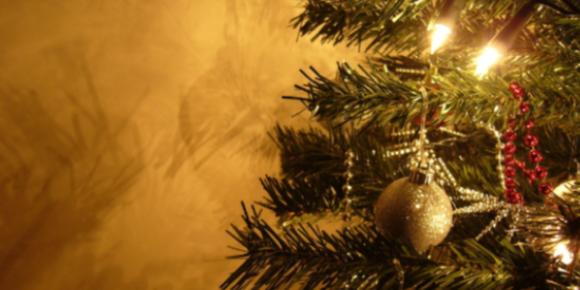Do You Have a Christmas Tree Allergy?

Do You Have a Christmas Tree Allergy?
Have you noticed an increase in allergy or asthma symptoms after putting up your Christmas tree? This is sometimes called Christmas Tree Syndrome or Christmas Tree Dermatitis and there can be several different reasons for these reactions here in the Salt Lake Valley. Additionally, both real and artificial trees can have their own set of problems.
The pine pollen is actually not the most common cause of allergic symptoms, other than the smell/odor can be irritating. Mold is actually the most common cause of increased nasal congestion, sneezing, trouble breathing, etc. More than 50 kinds of mold were found on samples researchers brought in from their own Christmas trees for a 2011 study published in the Annals of Allergy, Asthma and Immunology. Many of these molds are known to cause allergic rhinitis and asthma symptoms. Furthermore, Christmas ornaments and lights can be contaminated with dust, dust mites, or mold.
Additionally, some people can get rashes with Christmas tree exposure. Some trees have a sticky sap called colophony or resin that can cause a rash similar to poison ivy. This usually develops within a few days of touching the tree. Patients with sensitive skin can also develop an itchy rash from tree needles poking the skin as well.
Some potential helpful tricks:
- Shake as much debris as possible before bringing the tree inside
- Rinse/hose down your real tree before you bring it inside and let it dry for a few days in a garage or in some place warm. Some tree lots have machines to help shake off dirt and dead needles before transporting home
- Dust your artificial tree and ornaments. Glass, metal and plastic decorations are easier to keep dust free than soft, fabric ones. Wash off the stand as well
- For rashes: wear long sleeves and gloves to avoid needle pricks and sap. Change clothes when you are finished setting up the tree
- Consider removing your tree from your home after Christmas is over. Mold accumulates the longer your real tree stays inside
- For artificial Christmas trees, store your tree properly in a cool, dry space. Place the tree sections in a box, tree storage bag, or sealed plastic bags to keep away dust while in storage
Allergy Associates of Utah is an allergy, asthma, and immunology specialty clinic serving the greater Salt Lake City, Utah area with 2 convenient locations in Murray and West Jordan. Led by specialists Andrew Smith, MD, MS, and Tara Sarin, MD, the practice strives to help people of all ages and background achieve success. Request an appointment by phone or online at either Allergy Associates of Utah location for expert allergy and immunology care today.
Phone: (801) 263-8700
Phone: (801) 282-8700
 (232 reviews)
(232 reviews)